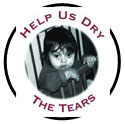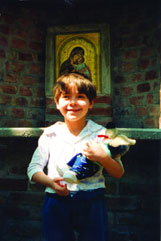 Dilators patient healedWhen we asked the doctors in this hospital were there any other life threatening situations for children, we were told they lost many children that were brought in with a damaged oesophagus. We began researching this story and we discovered that in rural areas in Romania, people make their own liquid soap which is made much cheaper than any soap they would buy.
Dilators patient healedWhen we asked the doctors in this hospital were there any other life threatening situations for children, we were told they lost many children that were brought in with a damaged oesophagus. We began researching this story and we discovered that in rural areas in Romania, people make their own liquid soap which is made much cheaper than any soap they would buy.
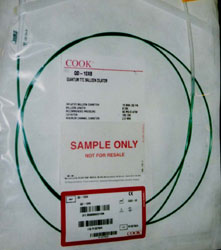 Our first Dilator
Our first Dilator
In making this they use cheap ingredients one of which is caustic soda. This liquid soap is then stored in empty soft drink bottles. Unfortunately they don’t take the labels off the bottles and children mistake them for drinks, resulting in the severe burning and damaging of their oesophagus. This is still happening today in Romania.
Historically, the only thing that could be done for these children was to operate and try to do something with the damaged oesophagus, but nine times out of ten this method wasn’t successful, meaning a lot of children died from this very common accident.
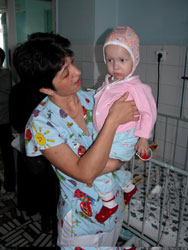 Dilator patient healedWhen 'Help Us Dry the Tears' (HUDT) researched this problem we discovered a treatment method in the US, with what they called oesophagus dilators. A tube is inserted into the oesophagus and a balloon type apparatus inflates to prevent the oesophagus from collapsing and enabling the child to be fed through this tube.
Dilator patient healedWhen 'Help Us Dry the Tears' (HUDT) researched this problem we discovered a treatment method in the US, with what they called oesophagus dilators. A tube is inserted into the oesophagus and a balloon type apparatus inflates to prevent the oesophagus from collapsing and enabling the child to be fed through this tube.
'Help Us Dry the Tears' (HUDT) began importing these dilators from the US and they are now being used regularly in the Marie Curie hospital. Since their inclusion in the treatment of these children, there have been no more fatalities from this type of accident.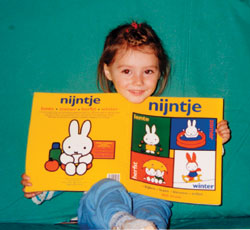 The first child healed using a dilator
The first child healed using a dilator
The first child we encountered with this serious situation in the hospital was treated with the first dilators we brought there and within two weeks she was on her feet again and eating normally she was the first child saved by this new procedure we brought to the Hospital.
Since then this procedure is a common one in the hospital and is not treated as a serious situation anymore.
